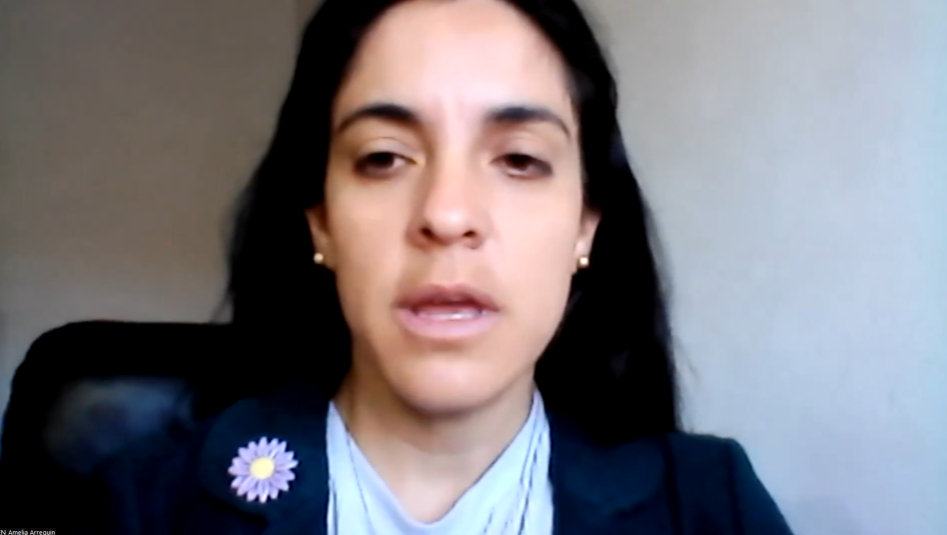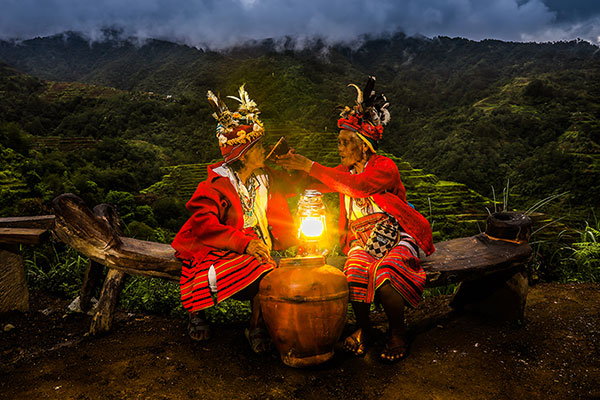A virtual roundtable on gender justice and biodiversity
TEXT BY AMELIA ARREGUIN
In 31 March, the UNCBD Women’s Caucus and the Convention on Biological Diversity hosted a virtual roundtable “How to update NBSAPs and develop national reports gender-responsively?” with the objective to provide concrete paths to include gender-responsive measures in revising and updating National Biodiversity Strategies and Action Plans (NBSAPs), and to discuss entry points for gender-responsive national reporting in 2026 and 2029.
The session was enriched by the oral presentations of Cicilia Githaiga, UNCBD Women’s Caucus Advisor; Jillian Campell, Head of Monitoring, Review and Reporting at UN Convention on Biological Diversity; Marion Marigo, Capacity Building and Biodiversity Senior Officer at the United Nations Development Programme, and Georgina Catacora-Vargas, Researcher at the Academic Peasant Unit “Tiahuanacu” of the Bolivian Catholic University. UNCBD Women’s Caucus Coordinator Amelia Arreguin moderated the session.
Aiming to discuss which coordinated efforts should be put in place to guarantee women and girls that their rights will be recognized in biodiversity policies, particularly when it comes to NBSAPs and national reports, the event began with some opening remarks from Cicilia Githaiga, Advisor of the UNCBD Women’s Caucus. She highlighted how good rules and sound procedures will lead to achievement of the rights of women and girls, and ensure they are engaged in the processes of decision-making, including the implementation of Targets 22 and 23 (stand-alone gender equality target) of the Kunming-Montreal Global Biodiversity Framework.
“We have to be able to find a way of participating,”Githaiga said. “If a table is not provided, you have to make your own table.”
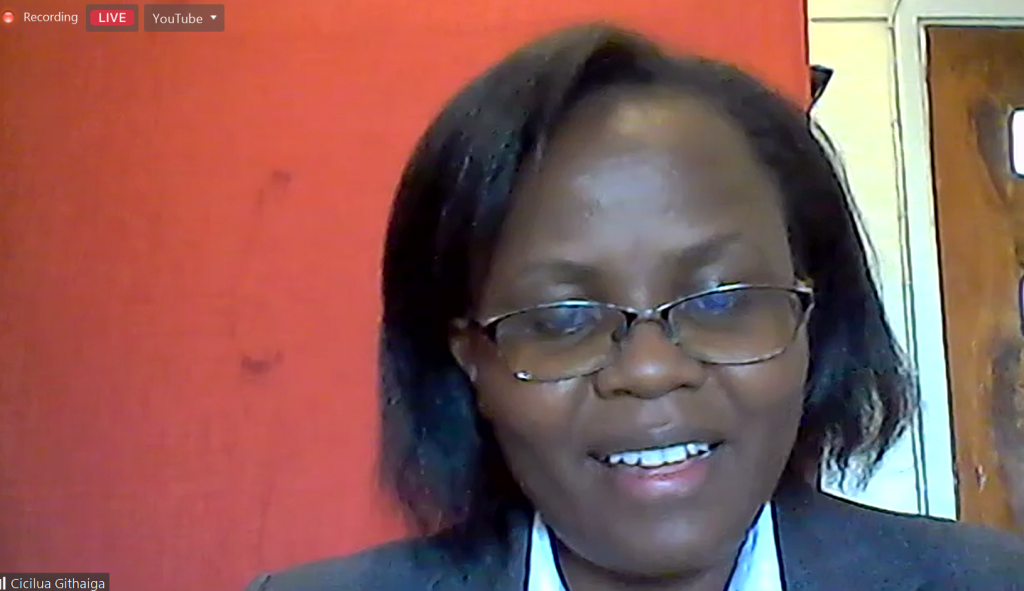
Considering that one of the eminent responsibilities of all governments after COP15 is to revise and update their NBSAPs aligned with the Kunming-Montreal Global Biodiversity Framework, Jillian Campell, Head of Monitoring, Review and Reporting at UN Convention on Biological Diversity, discussed could this be done in a gender-responsive manner. She highlighted that this would be possible only through a whole-of-society approach and recognizing women’s collective efforts. She also mentioned that women’s groups and a broader range of actors, under the human rights-based approach, should be involved as crucial considerations for implementation.
She added that the challenge, however, remains on how to promote ownership outside of the Ministry of Environment and the traditional CBD stakeholders. She said “living in harmony with nature” would be possible only “if we work together.”
Please click here to read Jillian’s presentation.
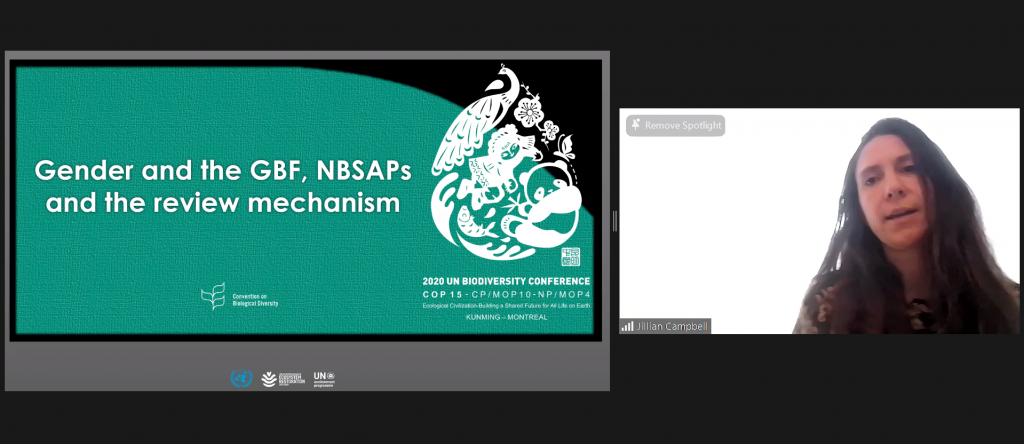
Once NBSAPs are revised or updated and implemented gender-responsively, there will be time to prepare the national reports that take into account women’s contributions and priorities. In this sense, Marion Marigo, Capacity Building and Biodiversity Senior Officer at UNDP, emphasized that the basis for a gender-responsive National Report lies in adequate indicators being integrated in the monitoring framework of the Kunming-Montreal Biodiversity Framework.
Marigo also insisted on the need for mobilizing the right stakeholders such as women’s groups, and ensuring their active participation throughout the Party-led process of National reports preparation.
She pointed to gender-responsiveness as “important not only per the requirement of CBD, but also because it helps countries achieve their national targets on biodiversity.”
Please click here to read Marion’s presentation.
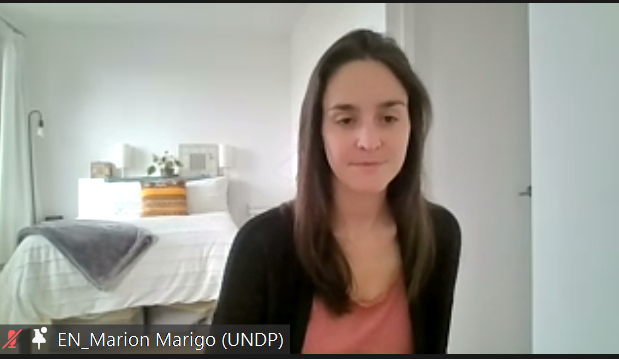
To close the panel, Georgina Catacora-Vargas, Researcher at the Academic Peasant Unit “Tiahuanacu” of the Bolivian Catholic University, reflected on her country’s experiences in developing gender-responsive NBSAPs and National reports.
“We don’t have sex-segregated statistics that can help us identify women’s circumstances, and the effects, the experience from policies’ implementations. I would dare to say it is a really systemic limitation,” she said.
She also highlighted the importance of appropriate regulatory and policy instruments that acknowledge women’s roles in biodiversity and securing the realization of their social, economic, cultural and political rights.
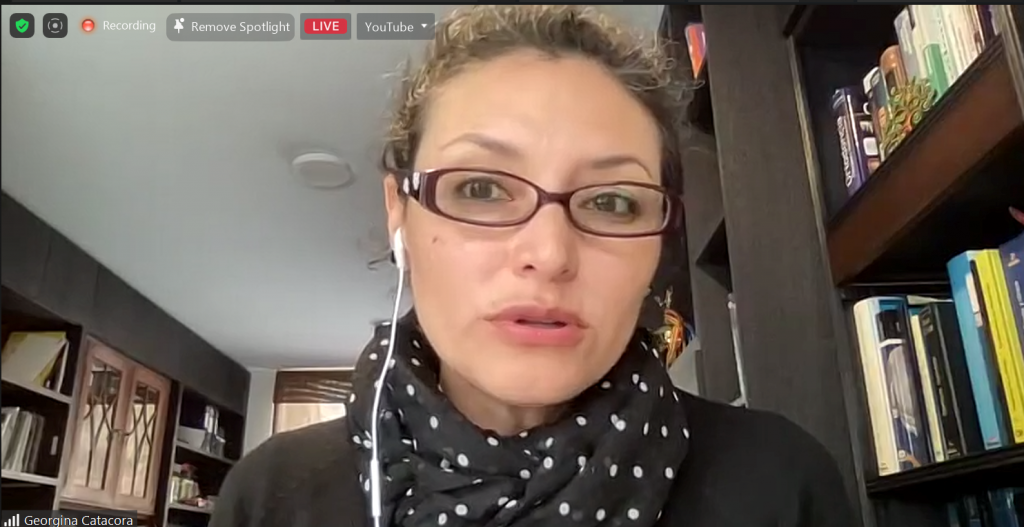
By the end of the session, Amelia Arreguin, moderator of the event and coordinator of the UNCBD Women’s Caucus, emphasized the legal commitment that all Parties to the CBD have towards women and girls as stated in CBD’s Decision 15/6, where an enhanced multidimensional approach to planning, monitoring, reporting and review was updated. Additionally, she stressed the need to address gender gaps and biases in biodiversity policies, while adopting concrete measures that contribute to gender justice and women’s empowerment.
